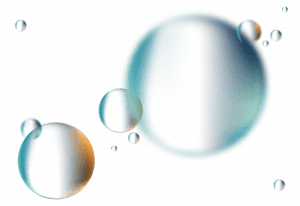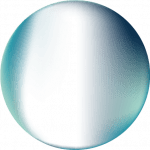Projects
Our demonstration projects
BalticWaters carries out large-scale environmental projects to show that change is possible and how it can be done. The projects are funded through donations from individuals, organisations and universities and are implemented by BalticWaters itself and together with universities, organisations and institutions. BalticWaters also develops and disseminates knowledge about the Baltic Sea environment to the general public, governmental authorities and decision-makers. The aim is to increase knowledge about the challenges facing the sea and build opinion so that decisions are taken, and measures implemented.
The foundations projects will also contribute to the implementation of the UN Sustainable Development Goals, with a particular focus on SDG 12: Responsible consumption and production, SDG 13: Climate action, SDG 14: Life below water and SDG 15: Life on land. Read more about our projects below.
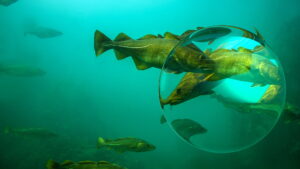
ReCod – release of small cod in the Baltic Sea
The Baltic Sea is a unique but vulnerable environment with a small exchange of water, varying salinity, and large areas with dead zones. Cod is
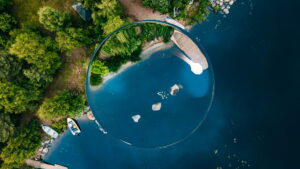
Thriving bays
This project will test and evaluate measures to restore one of the biologically richest natural environments in the Baltic Sea coastal areas – the shallow bays.
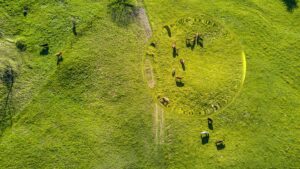
Circular NP – Better nutrient cycle for animal manure
The project will develop and test new techniques to harness plant nutrients in animal manure and develop a competitive biological fertilizer.
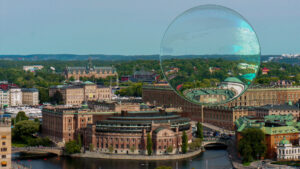
Fisheries policy with a focus on viable fish stocks
The foundation works to fundamentally change the rules for commercial fishing in the Baltic Sea, in favour of small-scale coastal fishing, while breaking the negative trend of the Baltic Sea fish populations.
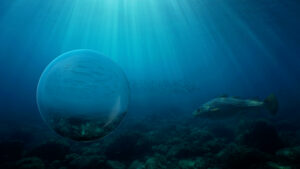
BalticWaters Fish Laboratory
Protecting Baltic Sea ecosystems, biodiversity and natural resources is more important than ever. At the same time, there is a great need for new knowledge
Our research- and information projects
The foundation carries our smaller research and information projects together with external actors and researchers from various universities. The projects primarily aim to investigate areas where there is currently a lack of knowledge.
The impact of horse husbandry on eutrophication
Project period 2020-2023
Horses produce a large amount of manure that has a negative impact on eutrophication. If collected, handled, and stored safely to be reintroduced into agriculture, it could be a valuable resource. This project aims to develop new knowledge about how horse-dense and trampled horse paddocks affect the aquatic environment, as well as to provide a scientific basis for motivating cost-effective measures. For more information, please contact us.
Long-term and high-frequency water quality monitoring for improved evaluation of the effects of measures and climate change
Project period 2023-2025
There is a need for increased understanding of different types of measures and their placement to make informed decisions in the continued work to reduce eutrophication in the Baltic Sea. The goal of the project is to evaluate the effects of measures such as structural liming, wetlands, and two-stage ditches with regards to water quality in two areas representative of Swedish agriculture, soil type and climate. By combining long-term and high-frequency water quality data, the project will evaluate which factors control the effectiveness of the different measures and whether they can lead to reduced nutrient supply from land to the Baltic Sea. The project is being carried out by the Department of Soil and Environment at the Swedish University of Agricultural Sciences. The project’s scientific part has been awarded a grant through BalticWaters’ programme to fund research projects and pre-studies. Read more about the project here.
Where does the carbon stored in Baltic Sea sediments come from?
Project period 2025-2026
The Baltic Sea plays an important role in absorbing and storing carbon dioxide – a natural function that mitigates climate change. Up to 50 percent of the organic carbon buried in marine sediments may originally come from land, but we know very little about its source and quality. The aim of the project is to investigate the sources of the carbon buried in the Baltic Sea and the results may provide an important piece of the puzzle for sustainable management of the Baltic Sea. The project is carried out by Umeå University. The project’s scientific part has been awarded a grant through BalticWaters’ programme to fund research projects and pre-studies.
Has large-scale fishing reduced inshore herring?
Project period 2025-2026
In order to determine whether large-scale fishing in coastal areas in recent years has reduced the herring stocks in the archipelagos, knowledge of the stock is needed from a historical perspective. The aim of the project is to analyse sonar data collected from 1985-2012, such a long data series allows a comparison with contemporary data and whether they are significantly different. However, the old dataset has been collected with different types of sonar and software. By making old and new datasets comparable, we can create a baseline against which future data can be compared. The project is carried out by Stockholm University. The project’s scientific part has been awarded a grant through BalticWaters’ programme to fund research projects and pre-studies.
When will eutrophication problems affect the Bothnian Bay?
Project period 2025-2026
Eutrophication is one of the biggest environmental problems facing the Baltic Sea. But the Gulf of Bothnia has so far been spared the harmful effects of eutrophication. Now, results from Swedish environmental monitoring indicate that phosphorus levels in the Gulf of Bothnia are on the rise, which may eventually lead to the same eutrophication problems as in the rest of the Baltic Sea. The cause of the increasing phosphorus levels is not fully understood, but it is likely that they come with inflowing water from the Bothnian Sea. The aim of the project is to clarify how the transport of phosphorus from the Bothnian Sea affects the Gulf of Bothnia, how it happens, and if or when the Gulf of Bothnia may be affected by eutrophication. The project is carried out by Umeå University. The project’s scientific part has been awarded a grant through BalticWaters’ programme to fund research projects and pre-studies.
Where and when do herring spawn in the Stockholm archipelago?
Project period 2025-2026
The Stockholm archipelago is an important spawning area for Baltic herring – but the abundance of herring has declined. The aim of the project is to build knowledge about where and when herring spawn and how the whole stock is structured in the Stockholm archipelago. Fundamental to herring productivity is the diversity of subgroups that spawn at different times of the year and in different locations. The spawning grounds are well known by fishermen, while scientific studies are few or absent. By better understanding when and where herring spawn, we can design protections and take action for stock recovery. The project is carried out by Stockholm University. The project’s scientific part has been awarded a grant through BalticWaters’ programme to fund research projects and pre-studies.
Effects of herring fishing on the Baltic Sea coastal ecosystem
Project period 2024-2026
Coastal fishermen and managers have long argued that the large harvest of herring by industrial trawlers in the Baltic Sea may force species such as grey seals and cormorants to move closer to the coast in search of food other than herring. This has not previously been investigated with scientific methodology – but will now be done within Agnes Olin’s project. If grey seals and cormorants eat more of the coast’s predatory fish, this may have effects on the entire coastal ecosystem – for example, the amount of filamentous algae may increase and thus exacerbate the symptoms of eutrophication. The project is being carried out by the Swedish University of Agricultural Sciences. The project’s scientific part has been awarded a grant through BalticWaters’ programme to fund research projects and pre-studies. Read more about the project here.
Baltic cod larval physiology thresholds and optima: a molecular approach
Project period 2024-2026
Human impact factors and climate change threaten Eastern Baltic cod. As natural reproduction and recruitment of cod is limited, restocking of cod larvae reared in hatcheries has emerged as a possible conservation strategy. Using controlled experiments, Sebastian will investigate the appropriate developmental stage for stocking cod larvae. He will use molecular tools to study the effects of different environmental conditions on larval hatching and release. The knowledge from this project will be an important piece of the puzzle for the ReCod project. The project is being carried out by DTU. The project’s scientific part has been awarded a grant through BalticWaters’ programme to fund research projects and pre-studies. For more information, please contact us.
Does bottom trawling affect blue carbon storage in the Baltic Sea?
Project period 2024-2025
Baltic Sea sediments can play an important role as carbon sinks. At the same time, trawling is carried out on these bottoms. Recent global studies estimate that bottom disturbance caused by trawling can impair carbon storage as it suspends the sediment. Clare will investigate the effects of bottom trawling on carbon turnover in the Baltic Sea. The results will provide important new data to support climate, environment, and fisheries management in the region. The project is being carried out by Stockholm university. The project’s scientific part has been awarded a grant through BalticWaters’ programme to fund research projects and pre-studies. For more information, please contact us.
Implementation of sustainable business models in coastal fisheries that depend on, and maintain, the marine ecosystem services in the Baltic Sea
Project period 2024-2025
The aim of the project is to describe the measures required for coastal fishing in the Swedish part of the Baltic Sea to become competitive and be able to take local/regional responsibility for the fish resource. Cecilia will describe and analyse the economic conditions that currently characterise coastal fishing and then identify sustainable business models where it is profitable for activities in coastal fishing to protect fish stocks. The project will result in proposals on how and under what conditions coastal fishing can take greater responsibility for the management of fish stocks and contribute to Sweden’s food supply. The project is being carried out by University of Gothenburg. The project’s scientific part has been awarded a grant through BalticWaters’ programme to fund research projects and pre-studies. For more information, please contact us.
Fun Facts – Communicating Science Through Stand-Up Comedy
Project period 2024-2025
Can stand-up comedy work to communicate science so that people become interested, understand better, and maybe even adopt and change behaviour? With the help of a stand-up artist and teacher, Ellen Schagerström, researcher at the Department of Biology and Environmental Science at the University of Gothenburg, will produce a 15-20 minute performance at the stand-up amateur club Big Ben in Stockholm. The performance aims to raise awareness and provoke thoughts around three themes: eutrophication, alien species, and seafood. The project is being carried out by University of Gothenburg. The project’s scientific part has been awarded a grant through BalticWaters’ programme to fund research projects and pre-studies. For more information, please contact us.
Understanding and protecting the diversity of Baltic Sea herring populations
Project period 2024-2025
The Baltic Sea herring stock consists of a diversity of populations with different adaptations and migration strategies. The aim of the project is to investigate adaptations of herring in coastal ecosystems in the Stockholm archipelago. The results will provide information on which subpopulations of herring thrive best in this important part of the Baltic Sea – information that is important to guide management measures to secure coastal ecosystem health and protect the integrity and productivity of herring stocks. The project is being carried out by Stockholm university. The project’s scientific part has been awarded a grant through BalticWaters’ programme to fund research projects and pre-studies. For more information, please contact us.
Hanö Cod Reef
Project period 2023-2025
Better opportunities for the cod to hide from predators have been proven to be positive for the cod’s growth and recovery of local populations. The goal of the project is to improve the conditions for cod by constructing artificial reefs made by hollow concrete blocks in Hanö bay off the east coast of Skåne. Hanö bay is one of the most important areas for the Baltic cod, offering good opportunities for foraging and located near one of the few cod spawning grounds in the Bornholm depth. The effects of the artificial reef will be evaluated to further develop and improve them – while at the same time increase knowledge about the cod. The project is being carried out by Lund University, the Marine Centre in Simrishamn Municipality and the Hanö Cod Association. The project’s scientific part has been awarded a grant through BalticWaters’ programme to fund research projects and pre-studies. Read more about the project here.
Understanding the life histories of small pelagic fishes for knowledge-based management decisions and a healthier Baltic Sea environment
Project period 2020-2023
Knowledge about age and growth of fish in the Baltic Sea is often incomplete, or even incorrect, which leads to insufficient knowledge of its importance for the ecosystem and fisheries. The goal of the project is to research the age and life expectancy of herring and sprat to increase understanding of the Baltic Sea ecosystem. Recent developments in genome studies show that the age structure is important for long-term sustainability – knowledge that ultimately contributes to the management of ecosystems and a healthier Baltic Sea. The project is being carried out by the Swedish University of Agricultural Sciences. The project’s scientific part has been awarded a grant through BalticWaters’ programme to fund research projects and pre-studies. Read more about the project here.
Do parasites and hypoxia prevent a recovery of Eastern Baltic cod?
Project period 2023-2025
The Baltic Sea’s eastern cod stock is today highly threatened due to overfishing combined with lack of oxygen, parasites, and seal predation. Although cod fishing in the Baltic Sea has been stopped since 2019, the stock has not recovered. The cod is small, lean and is growing slowly. The goal of the project is to examine how oxygen deficiency and liver parasites individually, and in combination, affect growth and well-being trough comparative field studies and experiments. The results of the studies will increase our understanding of the importance of oxygen deprivation and parasitic load for cod growth and may help develop management measures to conserve Baltic cod. The project is being carried out by the Swedish University of Agricultural Sciences. The project’s scientific part has been awarded a grant through BalticWaters’ programme to fund research projects and pre-studies. For more information, please contact us.
Analysis of the cod´s feed intake
Project period 2020-2023
This project aims to analyse the causes of the decline in Baltic Cod, its poorer growth and health. The development of the cod’s growth conditions will be explored by using new otolithic chemical methods during the period when the stock had a positive stock development (between 1920s-1980s) and compare it with the development of recent decades. For more information, please contact us.
Homing behaviour among herring stocks along the East Coast
Project period 2020-2023
How come some herring individuals form a stock and what are the mechanisms that separate a population from others of the same species? The question is scientifically interesting, but also important for sustainable fisheries management. Hence, the aim with this project is to analyse homing behaviour in herring stocks along the Svealand coast by collecting material for otolithic chemical studies from various spawning collections of herring from four spawning areas along the Svealand coast. For more information, please contact us.
Fine-scale population structure of herring and sprat in the Baltic Sea – implications for sustainable fishery
Project period 2022-2024
Herring and sprat have a central role in the Baltic Sea ecosystem, but there are knowledge gaps on how many stocks there are in the inland sea and how stable they are over time.
Intensive fishing has resulted in a decline of the stocks, which can have consequences for the food chain. Better knowledge of the stocks structure is required, to prevent fishing out local stocks. The aim of this project is to build knowledge for sustainable fisheries management and food security, by describing local population structure for herring and sprat. Genetic markers and whole genome sequencing will be used to explore fine-scale structure and temporal stability of herring and sprat populations. For more information, please contact us.
Book about the Baltic Sea – How did it turn out like this?
Project period 2022-2024
The Baltic Sea is one of the world’s most studied seas. The inland sea faces many challenges, but there are clear solutions to several of them. Yet, unsustainable use of the marine resources continues. Why this is, and how it is allowed to proceed, are questions that Henrik Hamrén, science journalist, will go to the bottom with by examining the mechanisms and underlying structures – political, economic, and psychological – that drive the unsustainable use of marine resources. The investigation will result in a book. Support has been provided by BalticWaters in favour for Hamréns work. For more information, please contact us.
RoC – Return of the Cod
Project period 2021-2022
The Baltic Sea cod used to be one of the world’s largest cod populations and is the most important predatory fish in the Baltic ecosystem. However, today the stocks consist of small and slim individuals in poor conditions and the existing fishing ban on the eastern cod is not enough – an ecosystem-based thinking is needed. The project RoC aims to identify and compile appropriate measures to restore the cod stock and to communicate the results to stakeholders. The goal is to act as a bridge between science and politics when the proposed measures are communicated. The project is carried out by FishSec together with partners. For more information, please contact us.
The good herring
Project period 2020-2022
After decades of intensive fishing, herring in the Baltic Sea are under threat. Falling fishing quotas and a negative biological development tells us that something is not right. The campaign aims to highlight the problems with tiday’s fisheries management, and present solutions. Visit the projects homepage here.
